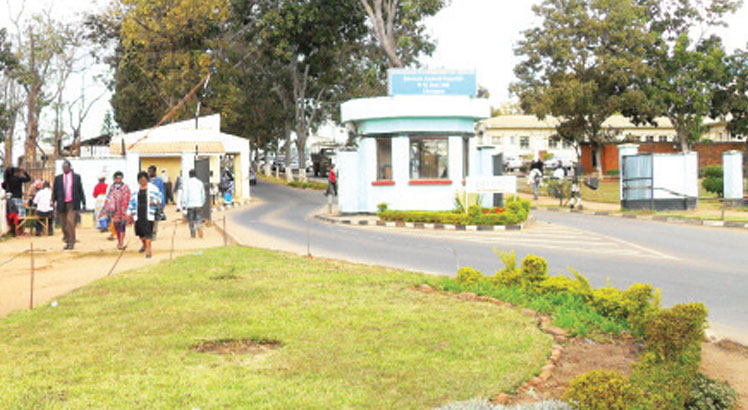TB patients go home without drugs
Patients diagnosed with TB in the country’s public health facilities are being sent home without medication because of a TB drug shortage.
Secretary for Health Samson Mndolo confirmed the problem in an interview yesterday.
“Yes, the Ministry of Health is aware of low stocks of TB drugs, especially first-line treatment drugs in some health facilities in the country. As we speak, we have 1.5 to 1.8 months’ worth of stock across the 500 or so health facilities that treat tuberculosis in the country,” he said.
Mndolo further said the low stocks have affected many countries, including Malawi.
He said the situation is due to a global shortage of active pharmaceutical ingredients for manufacturing TB drugs, which was communicated to countries, including Malawi by the Global Drug Facility in May 2024.

TB drug shortage I Nation
Mndolo said: “This, and failure of public tenders in some high-burden countries, have put pressure on the global TB drugs supply chain, culminating in delivery delays and the current situation.”
But with hope, he said Malawi is expecting a delivery of first-line treatment early next month.
“With the current levels in the country and combined with movement of some drugs from districts or facilities that have more than one month’s supply, we will minimise the impact of this problem on our patients between now and early September 2025,” Mndolo explained.
He said the ministry is also contacting Global Drug Facility to ensure that it gets its TB drugs consignment.
But in some of the country’s health facilities, the situation is more serious than Mndolo puts it.
Sources at Kamuzu Central Hospital (KCH) and Bwaila Hospital in Lilongwe confirmed to us yesterday that both have run out of essential TB medications for over two months.
One source said: “Every newly-diagnosed TB patient is supposed to get a fixed dose combination of Rifampicin, Isoniazid, Pyrazinamide and Ethambutol, in accordance with their body weight for two months.
“Now, the country’s hospitals have run out of these drugs meant for the first two months of treatment. We sent back eight TB patients on Monday and Tuesday alone this week. This problem has persisted for two months and is a nationwide crisis.”
The source expressed frustration at government’s reluctance to acknowledge the crisis, warning that it is a “health bomb” that could have devastating consequences, if not attended to quickly.
At Bwaila Hospital, another key health facility in Lilongwe, an official confirmed that the shortage is equally severe.
“What is happening here is that instead of giving those diagnosed with TB a dosage for a month, we are only giving them a dosage for a week, hoping that the National TB Control Programme will supply us with more drugs soon,” said a staff member.
He added: “We ran out of TB drugs two months ago. The remaining supplies were obtained from Mtengo Wanthenga Hospital because hospitals share drugs at times.”
Another official at Bwaila Hospital noted that Malawi’s stock ran out two months ago—well before recent reports that the supply chain has been severely disrupted.
“We are told Malawi is not a priority now. We expect the next consignment to arrive in January 2026, probably. The most shocking part is that authorities do not want to make this public,” he claimed.
Meanwhile, this silence has left patients and their families grappling with uncertainty and fear as they are told to wait indefinitely for supplies that may not arrive in the foreseeable future.
For some TB patients and their families, the impact is immediate and devastating.
A guardian from Area 24, whose sister was diagnosed with TB on Monday, was told they will not receive medication until the drugs arrive.
“My younger sister, who is 40, was diagnosed with TB last week. We were not given any medication because they said they are out of stock. They promised to call us once the drugs are in,” she said.
An Area 25 resident, whose daughter was diagnosed with TB at Lighthouse Trust Laboratories on Tuesday, recounted a similar frustrating story.
“We went home without medication and have no idea when she will get treatment,” she said.
Commenting on the development, health rights activists Maziko Matemba and George Jobe said TB is infectious and if people who have been diagnosed with the disease are being sent home without receiving medication, it means the spread of the disease in the country will not be contained.
“Government should do something about the crisis. Otherwise the country’s efforts to reduce the spread of the disease and deaths from the same will be fruitless,” said Matemba
On his part, Jobe, who is also Malawi Health Network (Mhen) executive director, said the shortage of TB drugs was worrying from both a health and human rights perspective.
He said: “A TB drugs stockout is a public health emergency that demands immediate, transparent and coordinated action. If there is a stockout of TB medication, the government has a responsibility to inform the public and to take emergency measures to resolve the issue. I urge the Ministry of Health to issue a public update and provide a clear plan to restore drug availability.”
TB is a significant public health concern in Malawi with an estimated incidence rate of 119 per 100 000 people, with 47 percent of TB cases co-infected with HIV. About 1 600 people die of TB annually. But specifically in 2021, approximately 7 700 Malawians died from TB, according to the World Health Organisation.





